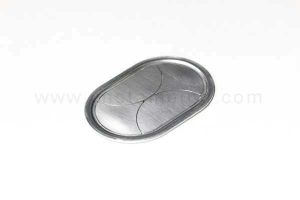Battery Rupture Disc Manufacturer-Why Do Global Car Companies Prefer Prismatic Batteries?
Types of Bursting Discs/Rupture Disks in Lithium Batteries
Battery Bursting discs or Rupture disks come in various designs, sizes, shapes, and set pressures. They can be installed on cylindrical, coin, prismatic, or pouch cells.
According to packaging types, there are three kinds of Li-ion batteries: cylindrical, prismatic, and pouch cells.
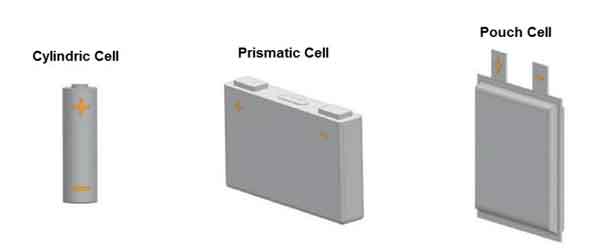
Cylindrical Cells
- Advantages: mature automated production process, low cost, Strong consistency of battery pack, and high energy density.
- Disadvantages: Low monomer capacity, high requirements for BMS and cooling system
Prismatic Cells
- Advantages: The protection effect on the battery cell is stronger than that of an aluminum-plastic film battery. And the safety is also stronger than that of a cylindrical battery case;
- Disadvantages: The energy density of the battery pack is limited, there are too many models, and the process is difficult to unify
Pouch Cells
- Advantages: Good safety performance, lightweight, high specific capacity, small internal resistance, flexible shape design.
- Disadvantages: Long cycle life, poor consistency, high cost, leakage occurs easily
In comparison, pouch batteries are less secure than prismatic batteries. The former is more likely to generate internal stress and expansion force due to expansion, resulting in changes in the battery’s internal structure. The prismatic battery adopts a winding or stacking process, which has a high energy density and long cycle life, and the shell is made of steel or aluminum.
Overall, it is reasonable for car companies to prefer prismatic lithium batteries, which also means that they are likely to become the main technical route on a global scale.
Impact on Global Li-ion Battery Companies
Chinese Li-ion Battery Company
With the improvement of technology, people are mainly use aluminum shells in China. Prismatic lithium batteries occupy the mainstream in electric vehicles, and the BMW i3 uses rectangular batteries from Samsung SDI. It is understood that since the production of new energy vehicles, Ningde-era batteries have been at a high level, followed by BYD. However, the directions of the two focuses are different. The former mainly focuses on prismatic ternary batteries, while the latter focuses on prismatic lithium iron phosphate batteries.
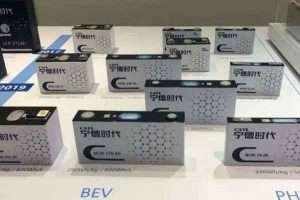
Korean Li-ion battery company
At present, only one South Korean manufacturer, Samsung SDI, has the production technology of prismatic batteries, and the current energy density of a single cell is about 220-250Wh/kg. Its capacity expansion in 2021 has become more aggressive, increasing investment in expanding battery capacity in Xi’anXi’an, China, Malaysia, and Hungary, and planning to build a third standard prismatic cell battery factory.
SK On (SKI’sSKI’s battery subsidiary) focuses on producing pouch batteries. But according to Korean media reports and industry insiders, it has completed the research on prismatic battery equipment and production lines. And the company has established a trial production line, and it is only a matter of time before it goes into mass production.
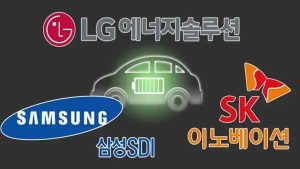
Japanese Li-ion battery company
Panasonic mainly focuses on the cylindrical route and has only supplied to Tesla before, and the willingness of development customers is conservative. Since 2020, Tesla has successively introduced LG New Energy and CATL, and Panasonic’sPanasonic’s share in Tesla has gradually been eroded. No other customers could supplement the lost market share when Tesla’s share decreased. Panasonic then cooperated with Toyota to build a factory and produce prismatic batteries. But there is no more public information about the joint venture factory between the two parties.
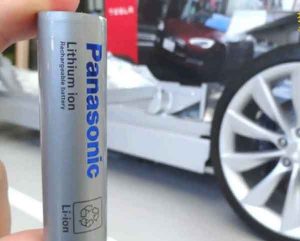
In this regard, it is not difficult to see that an important guideline has been revealed to the industry and the outside world: global car companies will be more inclined to prismatic batteries in the future. Global power battery companies are building a diversified technical route to meet the needs, whether in packaging form, material route, or final product form. Behind the increase in orders, lithium battery companies are also faced with the problems of achieving high-quality and efficient delivery of orders, scaling production capacity, and ensuring safety.
Heju Stamping-One-Stop Solution Provider For Reverse Scored Bursting Discs Used In Lithium Battery
Heju Stamping is a precision electronic components stamping manufacturer in China. It entered the field of new energy-power battery parts in 2016. It began developing and producing new-energy lithium battery rupture disks, sealed aluminum nails, power battery cover plates, and other structural parts. There are many models with different specifications. The blasting value remains stable, safe, and reliable. The extreme difference of single blasting value is within 0.03MPa, and the CPK value can reach above 4.0.
The factory has passed the three major certification systems of ISO9001, ISO14001, and IATF16949. Heju’s punching press machines to produce lithium battery rupture discs are mainly imported from Japan and Switzerland. Such as YAMADA, Jingli, KYORI, BRUDERER, and other brands. The testing equipment mainly includes the most advanced imported film thickness tester, magnified 1000 times to accurate monitoring blasting marks. We insist on providing customers with a daily output of one million to meet your production capacity needs.

